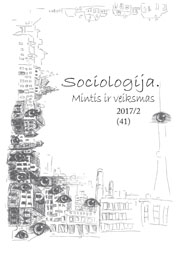BIPOLINIO ISTORINIO TEISINGUMO STRUKTŪROS IR POLITINĖ ATSKIRTIS. LIETUVOS RUSAKALBIŲ PRISIMINIMAI APIE ANTRĄJĮ PASAULINĮ KARĄ LIETUVOS IR RUSIJOS
ISTORIJOS POLITIKOS KONTEKSTE
POLITICAL EXCLUSION AND BIPOLAR STRUCTURES OF HISTORICAL JUSTICE. MEMORIES OF WWII AMONG LITHUANIAN RUSSIAN-SPEAKERS IN THE CONTEXT OF THE POLITICS OF HISTORY IN LITHUANIA AND RUSSIA
Author(s): Neringa KlumbytėSubject(s): Political history, Studies in violence and power, WW II and following years (1940 - 1949), History of Communism
Published by: Vilniaus Universiteto Leidykla
Keywords: historical justice; memory; World War II; political marginalization; Russian speakers;
Summary/Abstract: In Lithuania, the politics of history center on Lithuania’s Soviet occupation and post-war resistance, while in Russia the focus is on the USSR’s victory in WWII and the USSR’s role in the liberation of Europe from fascism. I argue that the politics of history in Lithuania and Russia create mutually exclusive, institutionalized, bipolar historical structures, according to which justice for one nationality is presented as an injustice to another. This article draws on the analysis of the politics of history in Lithuania and Russia as well as my own ethnographic research in Vilnius, Kaunas and Klaipėda among Lithuanian Russian-speakers and Lithuanians in 2016–2017. I show how in Lithuania, the politics of history surrounding WWII commemorations create the political exclusion of Russian speakers, which is experienced and unmade by personal justice and reconciliation stories of Lithuanian Russian-speakers as well as Lithuanians. In the context of geopolitical insecurity, which intensified after the Russia-Ukraine conflict, bipolar historical structures gain increasing significance as political tools; they are an outcome of both Lithuania’s and Russia’s politics of history.
Journal: Sociologija. Mintis ir Veiksmas
- Issue Year: 2017
- Issue No: 41 (02)
- Page Range: 137-168
- Page Count: 32
- Language: Lithuanian

